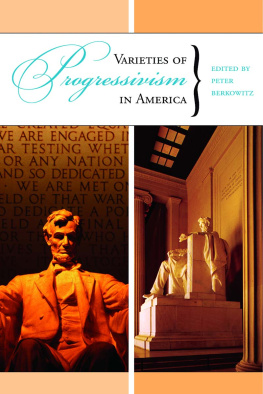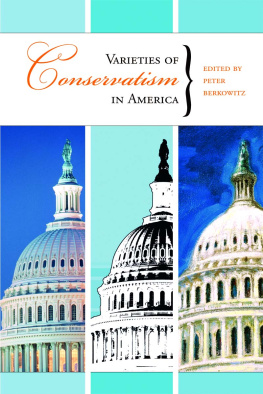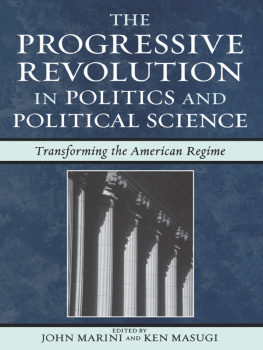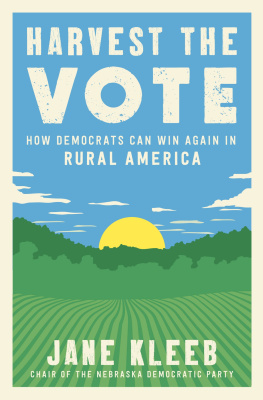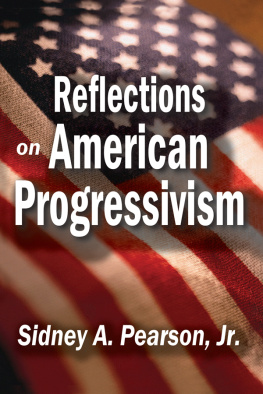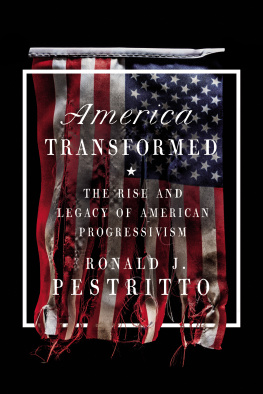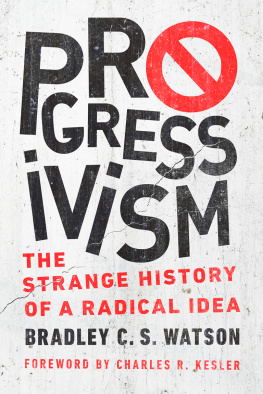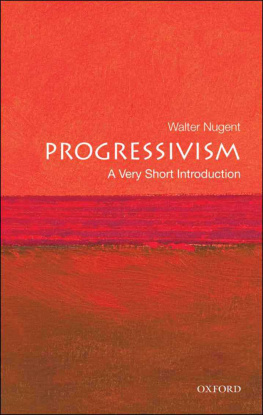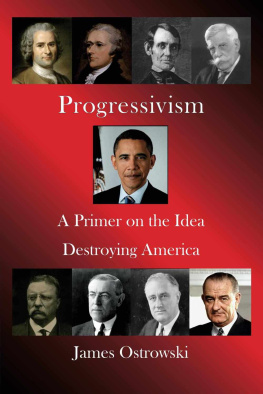This book is a publication
of the Hoover Institutions
Initiative on
American Individualism
and Values
The Hoover Institution
gratefully acknowledges
MR. AND MRS. CLAYTON W. FRYE JR.
for their generous support
of this book project.

The Hoover Institution on War, Revolution and Peace, founded at Stanford University in 1919 by Herbert Hoover, who went on to become the thirty-first president of the United States, is an interdisciplinary research center for advanced study on domestic and international affairs. The views expressed in its publications are entirely those of the authors and do not necessarily reflect the views of the staff, officers, or Board of Overseers of the Hoover Institution.
www.hoover.org
Hoover Institution Press Publication No. 534
Copyright 2004 by the Board of Trustees of the Leland Stanford Junior University
All rights reserved. No part of this publication may be reproduced, stored in a retrieval system, or transmitted in any form or by any means, electronic, mechanical, photocopying, recording, or otherwise, without written permission of the publisher.
First printing, 2004
11 10 09 08 07 06 05 04 9 8 7 6 5 4 3 2 1
Manufactured in the United States of America
The paper used in this publication meets the minimum requirements of the American National Standard for Information SciencesPermanence of Paper for Printed Library Materials, ANSI Z39.48-1992.

Library of Congress Cataloging-in-Publication Data
Varieties of progressivism in America / edited by Peter Berkowitz.
p. cm. (Hoover Institution Press publication series ; 534)
Includes bibliographical references and index.
ISBN 0-8179-4582-2
1. Democratic Party (U.S.) 2. Progressivism (United States politics) I. Berkowitz, Peter, 1959- II. Series: Hoover Institution publication ; 534.
JK2316.V37 2004
324.2736dc22
2004018471
CONTENTS
Peter Berkowitz
Ruy Teixeira
Thomas Byrne Edsall
William A. Galston
Franklin Foer
David Cole
Jeffrey C. Isaac
Index
CONTRIBUTORS
Peter Berkowitz teaches at George Mason University School of Law and is a fellow at the Hoover Institution, Stanford University. He is a founding codirector of the Jerusalem Program on Constitutional Government and served as a senior consultant to the Presidents Council on Bioethics. He is the author of Virtue and the Making of Modern Liberalism (1999) and Nietzsche: The Ethics of an Immoralist (1995), as well as editor of Never a Matter of Indifference: Sustaining Virtue in a Free Republic (2003) and of the companion to this volume, Varieties of Conservatism in America (2004). He has written on a variety of topics for a variety of publications.
David Cole is a professor at Georgetown University Law Center, volunteer staff attorney for the Center for Constitutional Rights, legal affairs correspondent for The Nation, and a commentator on NPRs All Things Considered. He is author, most recently, of Enemy Aliens: Double Standards and Constitutional Freedoms in the War on Terrorism (2003).
Thomas Byrne Edsall is a national political reporter for the Washington Post. He is the author of The New Politics of Inequality (1984), Power and Money (1988), and Chain Reaction (1992). He is also the winner of the Carey McWilliams Award of the American Political Science Association.
Franklin Foer is an associate editor at the New Republic and a contributing editor at New York Magazine. He is the author of How Soccer Explains the World: An Unlikely Theory of Globalization (2004).
William A. Galston is Saul Stern Professor at the School of Public Policy, University of Maryland; director of the Institute for Philosophy and Public Policy; and founding director of CIRCLE: The Center for Information and Research on Civic Learning and Engagement. From 1993 until 1995, he served as Deputy Assistant for Domestic Policy to President Clinton. He is the author of numerous books and articles, including Liberal Pluralism (2002) and The Practice of Liberal Pluralism (2004).
Jeffrey C. Isaac is James H. Rudy Professor and chair of the Department of Political Science at Indiana University. He is also the director of the Center for the Study of Democracy. His books include The Poverty of Progressivism: The Future of American Democracy in a Time of Liberal Decline (2003); Democracy in Dark Times (1998); Arendt, Camus and Modern Rebellion (1992); and Power and Marxist Theory (1987). He also writes regularly for Dissent magazine, on whose editorial board he serves.
Ruy Teixeira is a senior fellow at both the Center for American Progress and The Century Foundation. He is the author of five books; hundreds of articles, both scholarly and popular; a weekly online column, Public Opinion Watch; and a daily weblog, Donkey Rising. His latest book is The Emerging Democratic Majority (2002), written with John Judis.
ACKNOWLEDGMENTS
This book and its companion volume, Varieties of Conservatism in America, appear under the auspices of the Hoover Institutions Initiative on American Individualism and Values. Both volumes are animated by the conviction that it is advantageous, particularly at this moment of high partisan passion in the United States, to explore the inclinations, opinions, and ideas that inform partisan differences, as well as the principles that partisans in America share. The volumes, and the conviction that animates them, have enjoyed the generous support of Hoover Institution director John Raisian and deputy director David Brady.
Peter Berkowitz
Washington, D.C.
INTRODUCTION
Peter Berkowitz
IT HAS BECOME CUSTOMARY in the United States to refer to the left of center in American politics as liberal. This, however, is misleading because a liberal in the large sense, as Judith Shklar stressed, seeks, in the first place, to secure the political conditions that are necessary for the exercise of personal freedom1a description that also fits many conservatives in America. In fact, what has reliably distinguished Left from Right in American politics for the past fifty years is a sense of priorities and an opinion about governments purpose. To be on the left has meant to give priority to the end of promoting progressthat is, expanding the domain of individual liberty, particularly in regard to privacy and personal autonomy, and developing a more equal, inclusive society. To be on the left has also meant believing that government has the means and the moral obligation to accomplish the task.
In their agreement over ends or goals, or of what progress consists, progressives in America today differ from their counterparts on the right. Although conservatives in Americaclassical, libertarian, and neoconservativemake a priority of conserving goods that they believe are in danger of being lost or debased, they are nevertheless divided over which moral and political goods are most urgently in need of conservation. In contrast, contemporary progressiveswhether they lean toward the center or further left, or whether they draw inspiration from the original Progressive Era reformers, the New Deal, the Great Society and the civil rights movement, or the cultural transformations of the 1960sare principally divided over the meansthe kinds of government action and the sorts of supplements or alternatives to government actionfor achieving the progressive end around which they unite. Accordingly, this book focuses on the debates within the party of progress about how to promote it. This is in contrast to the books companion volume,

